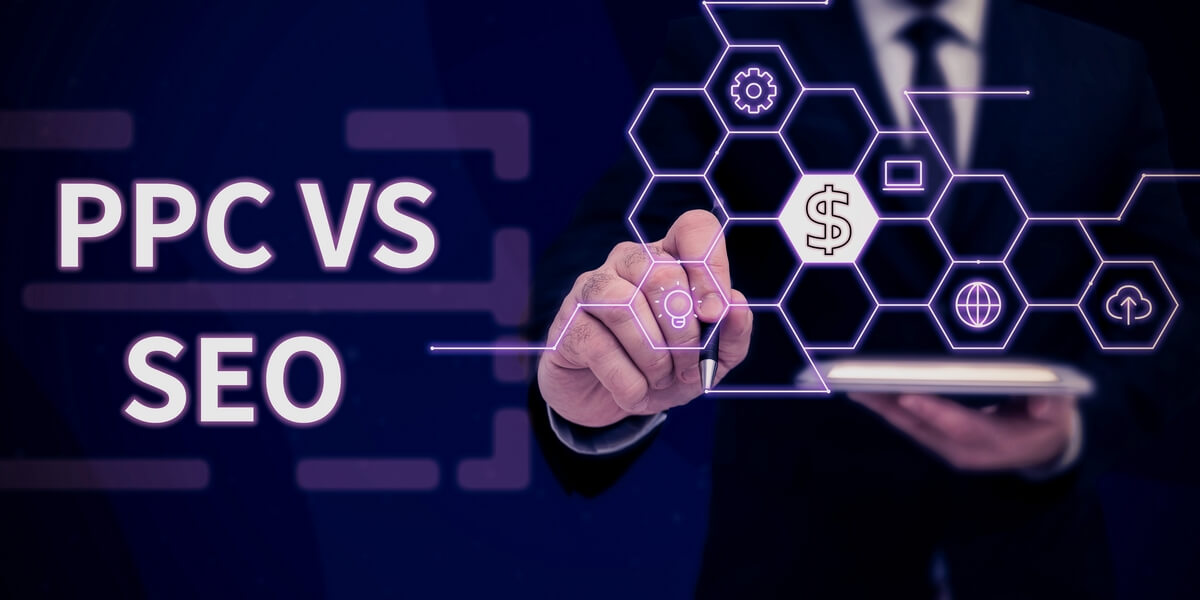Discover the key differences between SEO and PPC and learn the pros and cons of each strategy and make informed decisions to grow your business.
Content Marketing Lead Generation
Two of the most powerful strategies at the disposal of real wsteate professionals are Search Engine Optimization (SEO) and Pay-Per-Click (PPC) advertising.
As we look ahead to 2024, real estate agents, teams, and brokerages need to understand the differences between these strategies and how they can be used to achieve their marketing goals. Knowing the ins and outs of SEO and PPC will help real estate professionals make informed decisions about where to allocate their resources and how to build a strong online presence.
Let’s explore the pros and cons of both SEO and PPC, providing valuable insights to help real estate businesses thrive in the competitive landscape of 2024. Whether you’re aiming to attract quality leads, establish yourself as a local market expert, or enhance your overall marketing strategy, knowing the nuances of SEO and PPC is key.
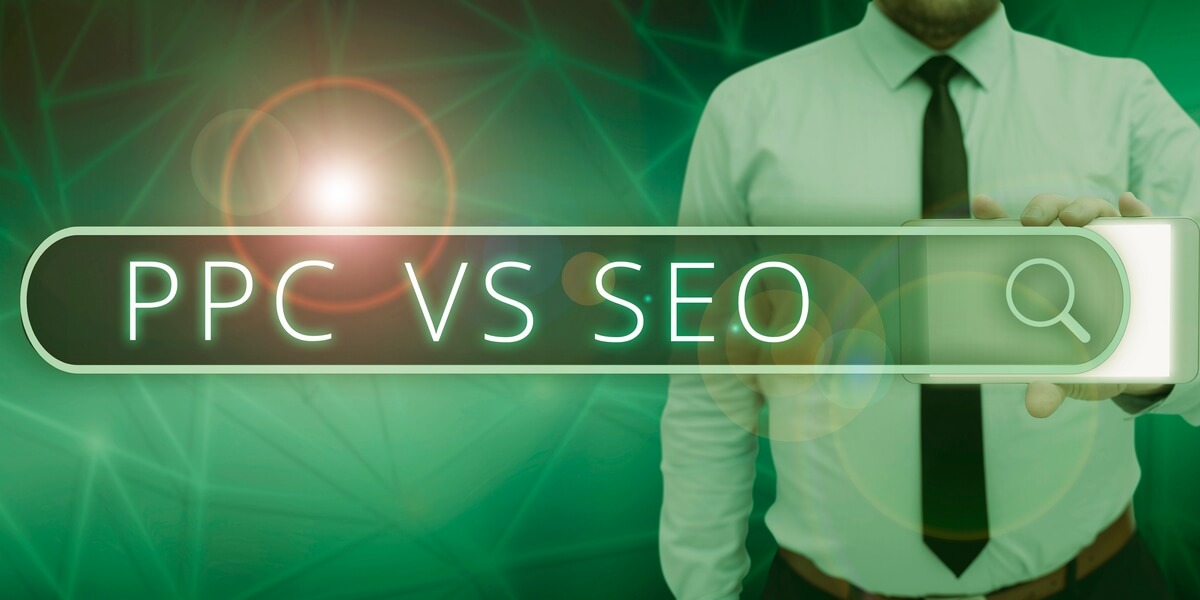
Understanding SEO and PPC
Search Engine Optimization (SEO) involves optimizing your website and its content to improve its visibility and ranking on search engine results pages (SERPs) for specific keywords. The goal of SEO is to drive organic, non-paid traffic to your website by making it more relevant and authoritative in the eyes of search engines like Google.
On the other hand, Pay-Per-Click (PPC) advertising is a form of paid search marketing where advertisers pay each time a user clicks on one of their ads. These ads appear at the top of SERPs, above the organic listings, and are targeted to specific keywords and audiences. For real estate professionals in 2024, mastering these strategies will be key to staying competitive and reaching potential clients effectively.
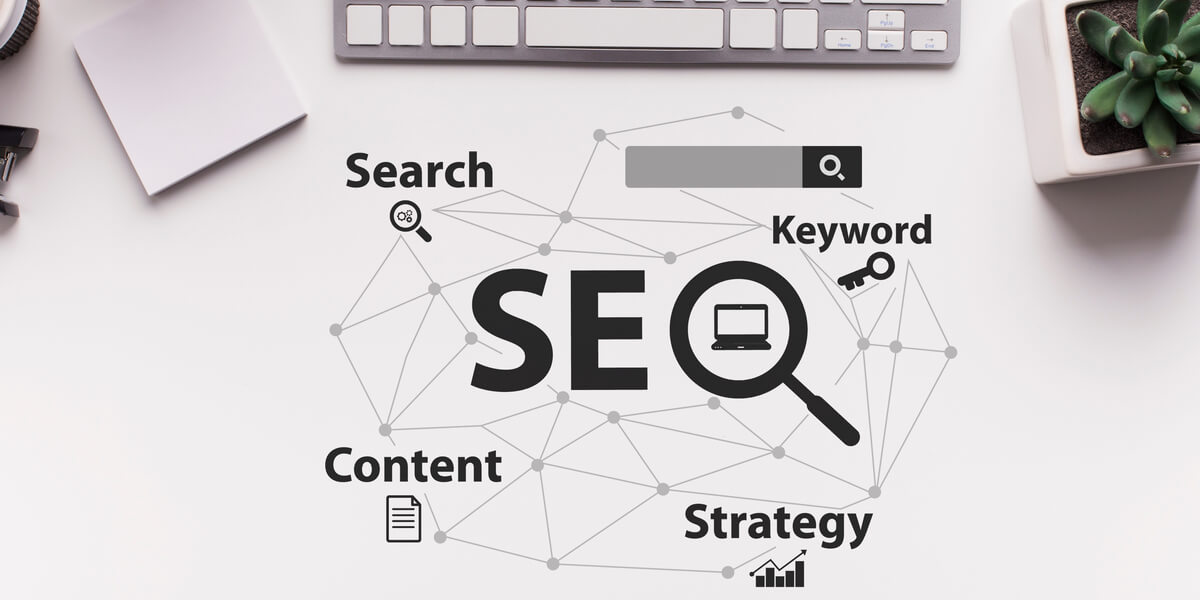
Pros and Cons of SEO for Real Estate
Advantages of SEO
- Sustainable traffic: Once your website ranks well for targeted keywords, you can enjoy a steady stream of organic traffic without the ongoing costs associated with paid advertising.
- Cost-effectiveness over time: While SEO requires an initial investment of time and resources, it can provide a higher return on investment (ROI) in the long run compared to PPC.
- Long-term brand visibility: Consistently appearing in the top organic search results for relevant keywords helps establish your brand as an authority in the real estate industry.
Challenges of SEO
- Time-intensive: SEO is a long-term strategy, and it can take months or even years to see significant results, especially for highly competitive keywords.
- Requires ongoing maintenance: To maintain and improve your search engine rankings, you must continuously optimize your website, create fresh content, and adapt to algorithm updates.
- Competitive landscape: With numerous real estate businesses vying for the top spots on SERPs, achieving and maintaining high rankings can be challenging.
Pros and Cons of PPC for Real Estate
Benefits of PPC
- Rapid results: Unlike SEO, PPC campaigns can deliver immediate traffic and leads, as your ads can start appearing on SERPs within hours of launching your campaign.
- Precise audience targeting: PPC allows you to target specifics like location, and even devices, ensuring that your ads reach the most relevant audience.
- Flexibility in budgeting: With PPC, you have complete control over your advertising budget, allowing you to adjust your spending based on performance and business goals.
Downsides of PPC
- Higher short-term costs: PPC can be expensive, especially in the real estate industry, where the cost-per-click (CPC) for targeted keywords can be high.
- Reliance on continuous funding: Once you stop investing in your PPC campaigns, your ads will no longer appear on SERPs, and the traffic they generate will cease.
- Potential for ad fatigue: If your target audience is repeatedly exposed to the same ads, they may become less responsive over time, leading to a decrease in click-through rates (CTR) and conversions.
Cost Comparison: SEO vs PPC
When choosing between SEO and PPC, it’s important to look at the costs and the potential return on investment (ROI) for each approach. Both require initial investments and ongoing expenses, and they offer different levels of scalability.
SEO Cost Structure
- Initial investments: SEO involves an upfront commitment to improving your website’s structure, doing keyword research, and creating content. This can include costs for SEO software, hiring experts, and making technical adjustments to your site.
- Ongoing expenses: Keeping your SEO efforts effective requires ongoing tasks like updating content, getting backlinks, and monitoring changes in search engine algorithms. While these activities may be less expensive than PPC in the long run, they still need consistent resources.
- Potential ROI: SEO provides a growing return over time. As your website’s authority increases, it attracts more organic traffic, leading to sustained visibility and cost-free clicks.
PPC Cost Structure
- Initial investments: Starting a PPC campaign involves setting up accounts, researching keywords, and creating ads. These initial steps are quicker and can have a lower initial cost compared to the extensive groundwork required for SEO.
- Ongoing expenses: With PPC, you pay for each click on your ads. The competitive nature of keywords in the real estate market often means high cost-per-click (CPC) rates, which require a continuous financial commitment to keep your ads effective.
- Potential ROI: PPC can generate immediate traffic and leads, making it great for short-term campaigns. However, the ROI is directly tied to your ad spend—stop spending, and the traffic stops too. This means you need to keep funding the campaigns to maintain results.
Long-term Financial Implications and Scalability
Looking at the long-term financial picture, a blended approach offers a path to sustainable growth.
Start with a great real estate website. As you invest into your SEO it will gain authority in search engines and need less financial input over time. This makes it easier to maintain a strong online presence without high ongoing costs.
Then integrate your website with PPC services to help keep a steady stream of leads coming in both short and long term. You can also scale campaigns based on performance metrics, but this often means higher costs. The ability to quickly adjust your ad spend is useful, but it ties long-term profitability to ongoing investments in ad budgets.
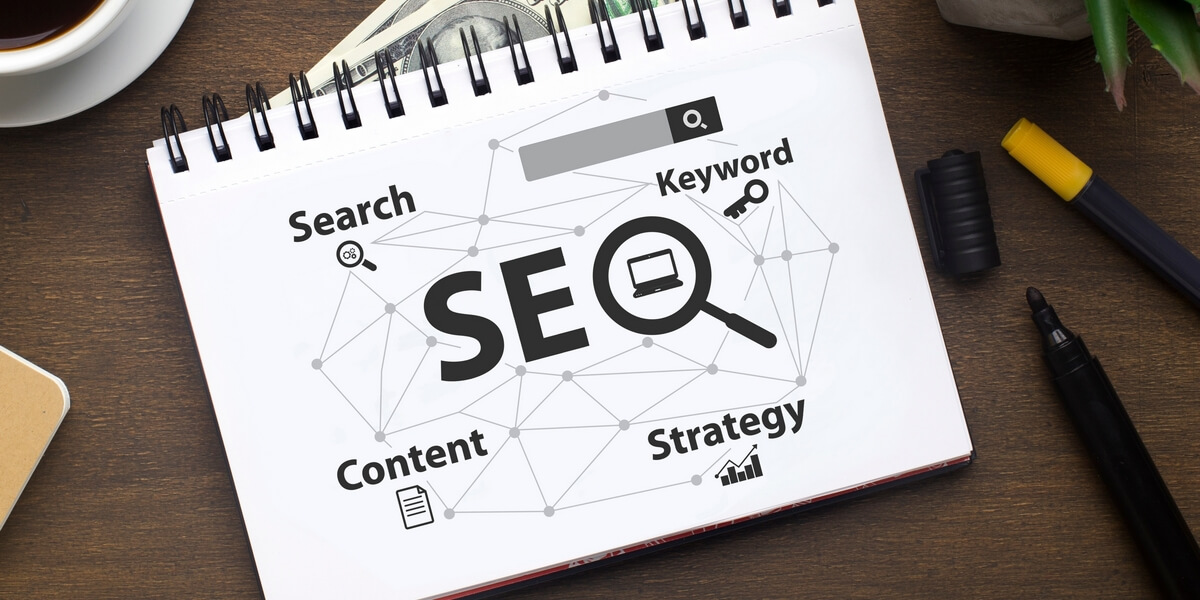
Effectiveness: SEO vs PPC
When deciding between SEO and PPC, real estate professionals should think about their specific goals and where each strategy performs best. Both have unique advantages that can be more effective in different situations.
When SEO Works Best
SEO is great for building a strong, long-term online presence and establishing authority in the real estate field. By focusing on long-tail, informational keywords like “real estate sales trends in [area]” or “first time home buying tips in [area],” you can attract users who are just starting their property search. This helps position your website as a go-to resource, building trust and authority with potential clients.
The long-lasting nature of SEO means that once your site ranks high for important terms, it continues to attract organic traffic over time. This ongoing visibility brings a steady flow of potential leads, requiring less frequent financial investment compared to PPC.
When PPC is Most Effective
On the other hand, PPC is excellent for immediate visibility and precise targeting. If you’re promoting a new property or recently sold, PPC can quickly grab the attention of potential buyers. Creating engaging ad copy and choosing the right keywords can drive targeted traffic to your listings almost instantly.
PPC’s ability to target audiences based on location, income level, and online behavior is particularly useful for reaching niche markets. This includes targeting luxury home buyers or first-time home purchasers, making sure your ads are seen by those most likely to convert.
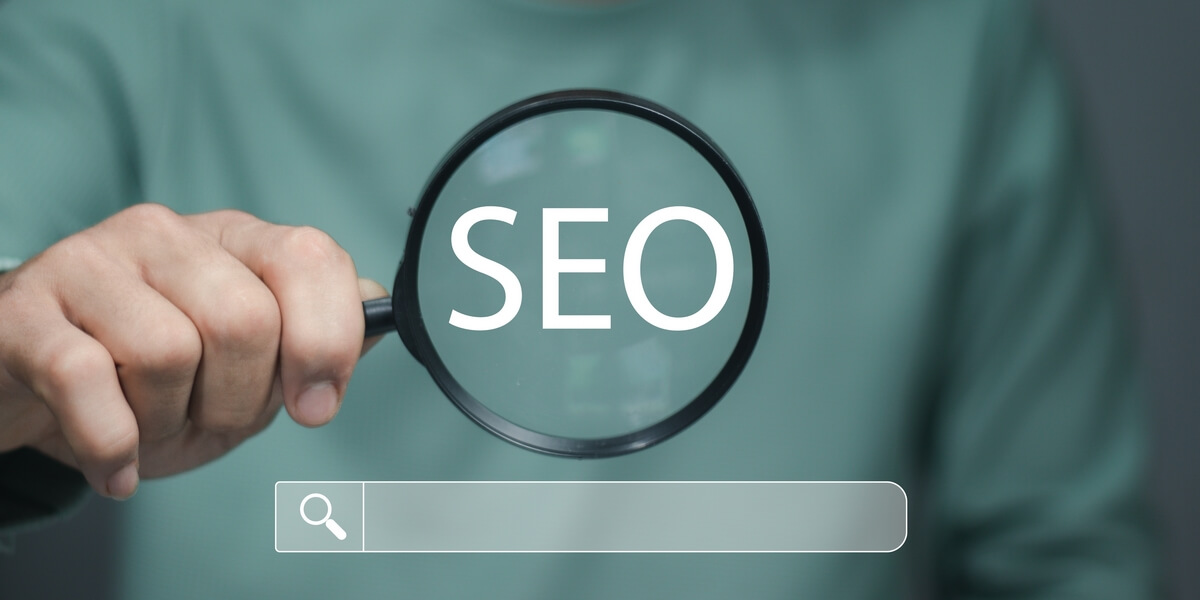
SEO and PPC Integration Strategies
SEO and PPC can each be effective on their own, but combining them into a single marketing approach can lead to even better results. By taking advantage of both methods, real estate professionals can attract more visitors, get higher-quality leads, and increase their online presence.
Using PPC Insights to Improve SEO
Your PPC campaigns can provide valuable insights that can enhance your SEO efforts. PPC data shows which keywords generate the most engagement and conversions, giving you a clear idea of what users are looking for. Using an integrated lead management system can help you track these metrics effectively. By analyzing this data, you can identify the most effective keywords and use them in your SEO strategy.
For example, if a certain keyword in your PPC campaign has a high conversion rate, you can create content around that keyword to improve your organic search rankings. This approach ensures that your SEO strategy is based on real user behavior, making it more targeted and effective.
Boosting Visibility with Concurrent Campaigns
Running SEO and PPC campaigns at the same time can increase your online presence by covering both paid and organic search results. This dual approach enhances your visibility and can lead to more clicks and greater brand recognition.
When running both types of campaigns, it’s important to keep your messaging and targeting consistent. Make sure your keywords, ad copy, and content strategy all align to create a unified brand experience. This consistency not only improves user engagement but also builds your brand’s credibility and trust.
Optimizing Both Channels for Success
To get the most out of integrating SEO and PPC, focus on optimizing both channels together. This means creating a smooth user experience for visitors from both organic search results and paid ads.
Develop high-converting landing pages that are tailored to your PPC ads and provide valuable information and clear calls to action. These pages should be fast, mobile-friendly, and easy to navigate. A positive user experience will improve your PPC quality scores and contribute to better SEO rankings.
Integrating SEO and PPC requires careful planning and ongoing optimization. Regularly review your campaign performance, analyze key metrics, and make data-driven adjustments to refine your strategy. This integrated approach will help real estate professionals attract more qualified leads and maintain a strong online presence.
By adopting a strategy that combines both SEO and PPC, real estate professionals can achieve greater visibility, higher engagement, and sustained growth in a competitive online environment.
As you navigate the evolving digital landscape in 2024, remember that a well-rounded approach incorporating both SEO and PPC can help you achieve your real estate marketing goals more effectively. By understanding the strengths and weaknesses of each strategy, you can make informed decisions that drive sustainable growth and success. If you’re looking for a partner to help you build a strong online presence and attract quality leads, book a demo with us today.
